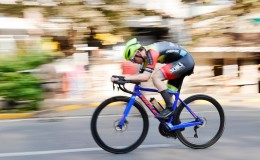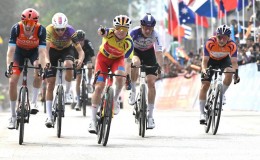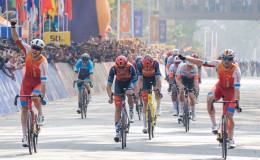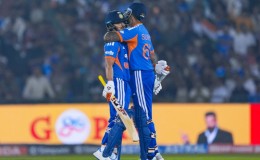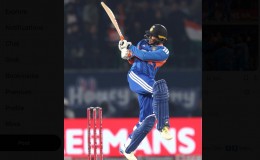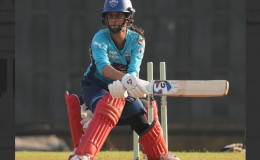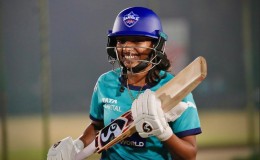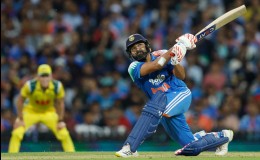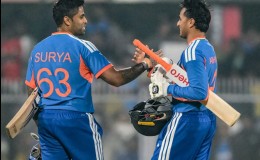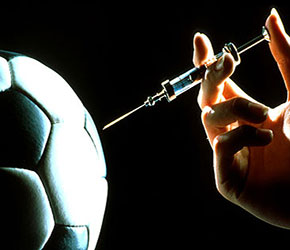 Even as the government, the Indian Olympic Association, Sports Authority of India and sports federations are red faced over the mess regarding the doping scandal that has hit the Indian sports (athletics in particular) off late, Indian coaches and sports experts from various sporting discipline are crying hoarse over the need to get more scientific.
Even as the government, the Indian Olympic Association, Sports Authority of India and sports federations are red faced over the mess regarding the doping scandal that has hit the Indian sports (athletics in particular) off late, Indian coaches and sports experts from various sporting discipline are crying hoarse over the need to get more scientific.
The world of sports has moved ahead with the help of science and technology. And here we are in India…we hardly know what sports medicine and sciences is all about.
Not long ago, the indifferent attitude adopted by the Sports Authority of India (SAI) had forced a number of its senior scientific officers and sports medicine doctors to resign from their jobs and if condition is to be assessed, it’s getting worse day by day.
“The situation has gone from bad to worse in the last few years. In 2006 nine out of the 25 sports medicine doctors and scientists had resigned in a span of one year. We all thought that it will be an eye-opener for the SAI. But it hardly made any difference. After a lot of hue and cry in the Parliament, ad-hoc arrangements were made but no concrete arrangements have been done to solve the problem. Rather, in theses three years, a number of doctors and scientists have retired and no step has been taken to fill the vacated seats,” said one sports medicine doctor on condition of anonymity.
"We don't have the concept of sports medicine and sciences in our country. Here the authorities think sports medicine and sciences are only meant to treat injuries. But that can be done by any practicing doctor. It's all about studying the athletes' behaviour, their progress, their requirements and finding the necessary solutions to improve their performance. It's not a day's job. To improve every team needs to have a support staff, including doctor, physiotherapist, masseur, psychologist, computer analyst, statistician, et al. But here we hardly have any," said a senior scientist, citing this as one of the vital reasons for India's dismal show.
Informing further about the apathy about Indian sports, he said that as if this is not enough, in any mega events the federations send support staff who are their favourites and from their own fraternity due to vested interests. "It's all about feathering their nest and obliging their near and dear ones who have brought them into power. And the government without much thinking clears their names. Hardly any of the support staff accompanying teams have any knowledge about sports medicine. So how can you expect them to help our sportspersons during these events," he questioned.

Most of the Indian contingent comprise of officials and not players! Interestingly, in case of selection of doctors, too, it is not merit that becomes the deciding factor. Doctors from SAI who remain attached for long periods with the teams during the domestic national camps usually find themselves replaced by others, who don't even know the athlete or the game, courtesy, the federation. As long as nepotism and favouritism remain, it will be very difficult for us to grow out of this and excel," argued a sports scientist, revealing that presently a number of physiotherapist and masseurs appointed by the federations and SAI are inadequately qualified.
“Every federation has appointed its set of staff and as usual it’s not the qualification but their proximity to the federation officials that has landed them the job. SAI too has appointed physiotherapist and masseurs for every federation and that in a way leads to a clash of interest. I have come across a number of masseurs and physiotherapists who are not qualified. I was surprised to know that one of them was a groundsman's son and other worked as a helper for a coach. And this is just tip of the iceberg and they get paid anything between Rs 10000 to Rs 15000. Even the psychologists appointed by the federations and SAI on adhoc basis are fresh pass-outs (mostly MA). In sports you need experienced psychologists with knowledge in sports or else the very concept of having one will backfire,” he informed.
One of the experts challenged the system and informed that these people who get the plump assignments hardly visit the national championships and camps. "How can you think of improving the conditions of athletes when they hardly study them? It can't be done in a day. The sportspersons need adequate and long term monitoring where each and every of their habits, including mental and physical, needs to be studied. Our country is already in dire crisis in terms of sports medicine practitioners and scientists. And whatever resources we have, they are not being utilised due to vested interests. So why only blame the athletes for the poor show when the problem lies somewhere else," he said, stating that a sportsperson can reach only to a level after which it is all about scientific training and analysis of his mental and physical being.
"We can never progress with this knowledge or the lack of it. The condition will remain the same. Developing infrastructure can facilitate an athlete's progress but cannot take him to that optimum level where they can compete with the very best in the world. Government will have to think on this. Presently, we don't have a single Sports Medicine and Sciences department run by any state government. Even if not elaborate, it will have to be made mandatory thing for every state government. It's the need of the hour where sportspersons have to be monitored from the very initial stage. China is an example and see its progress," he voiced assertively.
"The Australian Institute of Sports Medicine (Canberra) boasts of approximately 80 to 90 member staff at scientists' level while the Chinese Institute of Sports Medicine ( Beijing) has 170 and the Japan Institute of Sports Medicine (Tokyo) has approx 150 staff at one very centre compared to 15 spread at all centres in India. And here we don't have even a psychologist at some centres. So the existing condition of sports scenario in our country should not come as a big surprise," said an expert.

